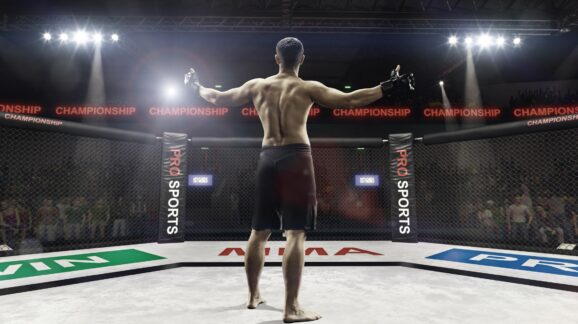Ringside seats at today’s Senate cage match

Photo Credit: Getty
A lot of preparation goes into testifying before a Senate committee. To borrow from the late Donald Rumsfeld, there are the “known” things that you must do, such as writing and practicing your testimony. Then there are the “known unknowns” you must prepare for, such as trying to anticipate questions you might be asked by senators and have responses ready for them.
What you cannot really do is prepare for the “unknown unknowns.” Those things that you never think to prepare for because it never occurs to you that they might happen. These are things such as a sitting US senator challenging the head of a major union to a fistfight in the committee room.
I spent several days preparing for Tuesday’s hearing before the Senate Health Education, Labor and Pensions Committee, but I failed to prepare a response for that particular eventuality. There was nothing else for me to do but wing it.
So here’s what I would have said if I had gotten another question following the fight challenge: “I would like to inform the committee that I am wearing a black and white-striped shirt and black slacks. So, if you have need of a referee, I am available.” Alas, no senator asked me another question.
I had been a reporter who covered Congress for many years prior to joining the Competitive Enterprise Institute. I’ve sat through many a hearing. Today’s event was a bit different in that I would actually be one of the experts offering their testimony.
It was a daunting invite. The committee’s chairman is Vermont Sen. Bernie Sanders (I), the chamber’s most prominent socialist and a major fan of unions. Two of the other witness would be International Brotherhood of Teamsters President Sean O’Brien and United Auto Workers president Shawn Fain. “What if one of the senators or union leaders takes issue with something I say?” I wondered. I crammed liked a college freshman in the days leading up to the hearing so that I could answer any question that might come up.
Then the day of the hearing comes. As I am waiting for the hearing to begin, a Senate staffer offhandedly remarks that Oklahoma Sen. Markwayne Mullin, a Republican, had sent a letter earlier to the Teamsters. “He wasn’t satisfied with the response that he got, so that might come up in the hearing,” the staffer warned.
The hearing began and I made my remarks, which involve what the National Labor Relations Act really says about the role of the government in union organizing. I get asked a few questions. Things are mostly routine. So far, so good.
The Teamsters president does make a comment that I believe was directed at me regarding pundits who don’t know what things are like for working people, but it’s not substantial enough to rate a response.
The Heritage Foundation’s Diana Furchtgott-Roth, also testifying, was seated next to me. She was similarly prepared, having brought a small binder full of economic statistics, factoids and other data, all hand-written.
Then the unknown unknown happens. Mullin gets his chance to ask a question. It begins with him reading aloud some statistics about workers in states with right to work laws and how well they fare well despite what union leaders, who oppose such laws, claim.
Then the senator begins reading some tweets O’Brien made following an earlier hearing. O’Brien had called Mullin a “clown” among other insults.
“In reality, just a clown & fraud. Always has been, always will be. Quit the tough guy act in these senate hearings. You know where to find me. Anyplace, Anytime cowboy. #LittleManSyndrome,” O’Brien tweeted about Mullin in June. The gauntlet had been thrown down. Mullin picked it up.
“Sir, this is a time, this is a place. You want to run your mouth, we can be two consenting adults, we can finish it here,” Mullin told O’Brien.
“OK, that’s fine. Perfect,” O’Brien replied.
Mullin then demanded that the Teamsters president “stand your butt up then.”
The senator, a former mixed-martial arts fighter, stood up and gave every impression of being 100 percent serious about getting into a slugfest with O’Brien right there, right then in the committee. O’Brien demurred, adding that this was why he called Mullin a clown previously. That did little to calm things.
Chairman Sanders intervened, announcing that there would be no physical fighting of any kind in his committee and telling both men to be quiet. It took the chairman a moment or two, but after several gavel bangs he did regain control of the committee.
I could only sit there and watch. “I have a sneaking suspicion that that is going to be the one thing people remember about this hearing,” I thought.